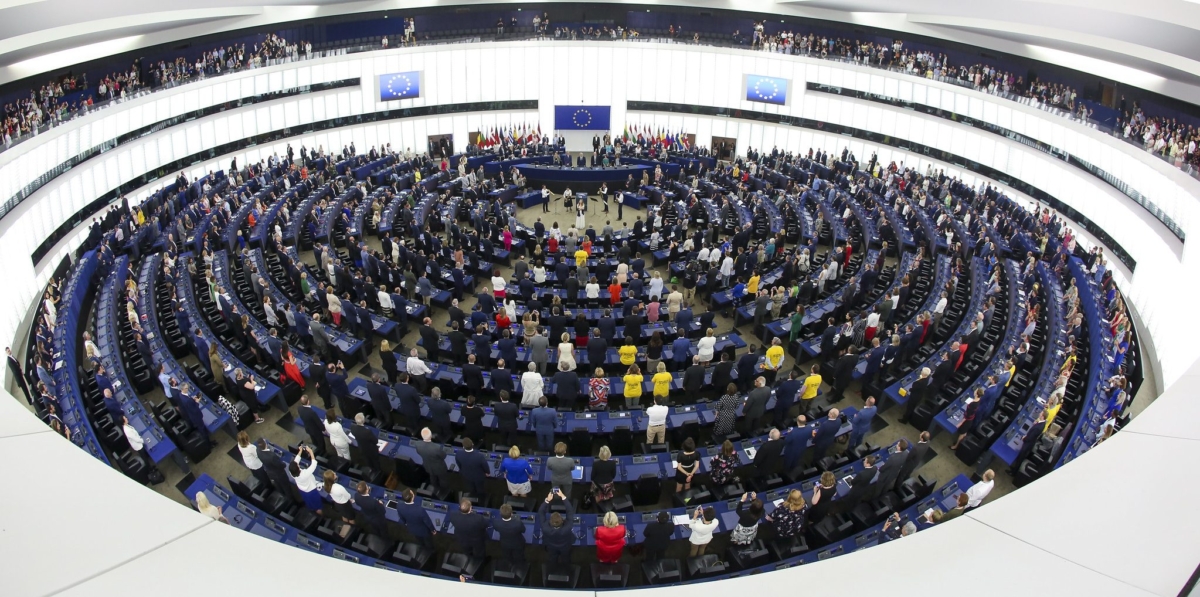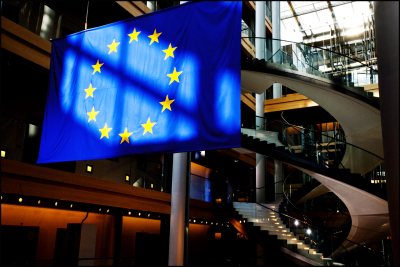The newly elected MEPs of the UK Brexit Party* and the Italian party Lega have the highest combined outside earnings of any national party delegations in the European Parliament, according to an analysis by Transparency International EU (TI EU). While high-earners are present in nearly all the political groups, the non-aligned, to the which the Brexit Party belongs, take in nearly double the average outside income of all MEPs combined. The analysis is based on MEPs’ own declarations of financial interests, which TI EU has made available for scrutiny through its updated EU Integrity Watch database.
Whether it is board memberships, local elected office or financial interests, the practice of Members of the European Parliament (MEPs) exercising outside activities is relatively common. According to the Parliament’s own rules, these outside activities must be declared and publicly listed on each MEP’s individual web-page. This exercise in transparency allows any concerned citizen to identify potential conflict of interests. With the start of a new mandate comes a flurry of new declarations to scrutinise. The data for the newly elected Parliament is now available through TI EU’s Integrity Watch online platform. Below are some key facts and figures.
In total, 521 of the newly elected 748 MEPs** have declared 1503 side activities, of which 842 are paid. While these only concern 30% percent of all MEPs, taken together this amounts to a minimum combined yearly sum of at least €6,381,924 million and potentially as much as €16,204,186 million***. Outside income is not reported in exact amounts but broad gross ranges which explains the large margin between the minimum and the maximum amounts.
Of the MEPs declaring outside income, 48 have declared a yearly gross income that may be higher than the yearly pre-tax salary they receive (€105,092.40). Unfortunately, the current system still allows for declarations that contain vague or generic jobs descriptions. In a brief analysis, we found descriptions ranging from “self-employed consultant” to “lawyer” or “partner in registered partnership”. Imprecise descriptions render the monitoring and prevention exercise much more difficult as it prevents the Parliament’s own ethics system, as well as journalists, civil society and citizens from properly evaluating potential conflicts of interests.
Our previous report on MEPs side activities published in July 2018 highlighted the urgent need for reform as the current system rests solely on the willingness of the President of the Parliament to enforce the Code of Conduct. The lack of investigative powers and credible sanctioning mechanisms leads to a permissive system that is at risk of not being taken seriously. In the last legislature alone, a total of 24 breaches to the Code were documented, yet no sanction was issued by the President. An independent system would significantly enhance the quality of the information provided and ensure a higher degree of compliance with the Code.
Commission President-elect Ursula Von Der Leyen has listed the setting up of an ‘independent EU ethics body’ as one of her political priorities for the upcoming mandate. TI EU welcomes this commitment and looks forward to early and urgent action being taken towards its implementation. In order to be effective, the new body must be well-resourced, be able to initiate investigations and mandated to issue binding recommendations to MEPs and Commissioners. We call upon the President-elect and all MEPs who supported our election pledge to finally make good on this long-standing concern.
* The Brexit Party advocates for the UK to leave the European Union, which at current course is set for the 31st of October.
**Three elected Catalan MEPs are currently bared from taking office. Only 748 MEPs are currently sitting.
***MEPs report their income in monthly gross categories. The most prevalent category is €1,001-€5,000 which explains the large discrepancy between the minimum and the maximum reported income.
DISCLAIMER
The Code of Conduct of the European Parliament establishes that for reasons of transparency, Members of the European Parliament (MEPs) shall submit a declaration of financial interests. Those declarations shall then be published on the Parliament’s website.
All data of outside incomes of MEPs comes from the website of the European Parliament. EU Integrity Watch automatically extracts the information from the original declarations that are published in Pdf format on the Parliament’s website and uses them to regularly update its own database. The date of the latest update is featured on our website. All information contained in the original declaration is under the sole responsibility of the member of the European Parliament that filled out and signed the declaration. As this is the beginning of the legislative mandate, the annual figures are projections based on the provided monthly figures in the current declarations. Furthermore, the information is currently only available in the language in which the member has filled out the declaration. Given that the Parliament only provides the data in Pdf format instead of a reliable open data format, our information might not be 100% accurate. On each profile of a member we link to the profile on the Parliament’s own website, where the original declaration and all other information can be checked and verified.






